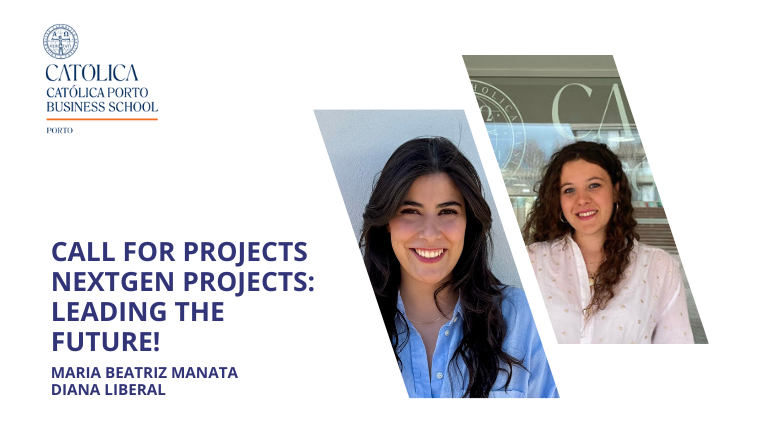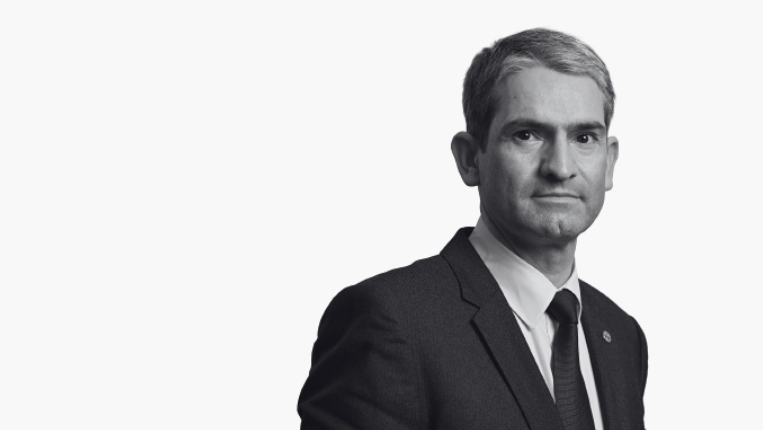"Do multigenerational teams improve productivity? Does turning 50 bring new concerns at work? Are there differences between generations in terms of perceived age and real age? What does each generation value most in the workplace? Do the different generations know what "ageism" is?"
These were some of the issues debated during the Annual Conference of the Ethics Forum at Católica Porto Business School (CPBS), held on 17th October. During the session, Helena Gonçalves and Susana Magalhães presented the first results of the Ethics Forum's annual study on "Ethics and Generational Diversity at Work".
Among the preliminary data presented, the answers collected from the participants revealed, for example, that the majority of young adults (18 to 24 years old) feel pressure to show their worth because of their age (70%). Among those over 60, almost half (43%) have worked harder to exceed people's expectations of them as representatives of a given generation.
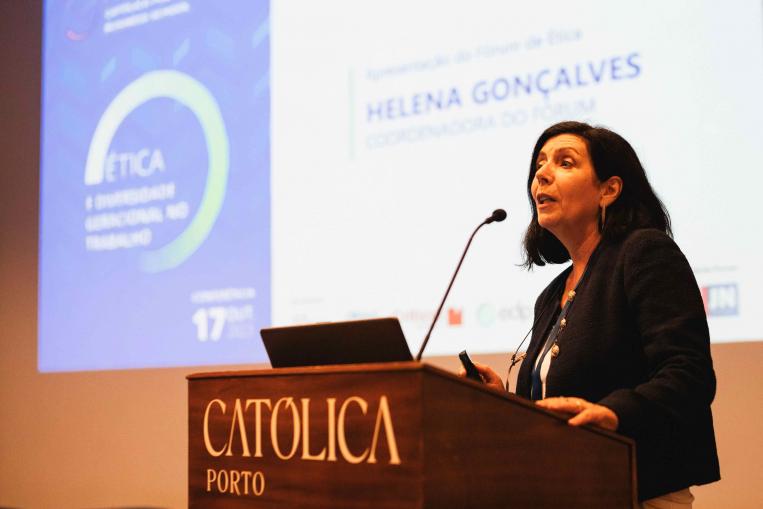
Helena Gonçalves, coordinator of the Ethics Forum and one of the coordinators of the study, pointed out that "the state of the art on this subject shows us that it is not uncommon for stereotypes, prejudices and discrimination to exist in relation to older people, but also in relation to younger people".
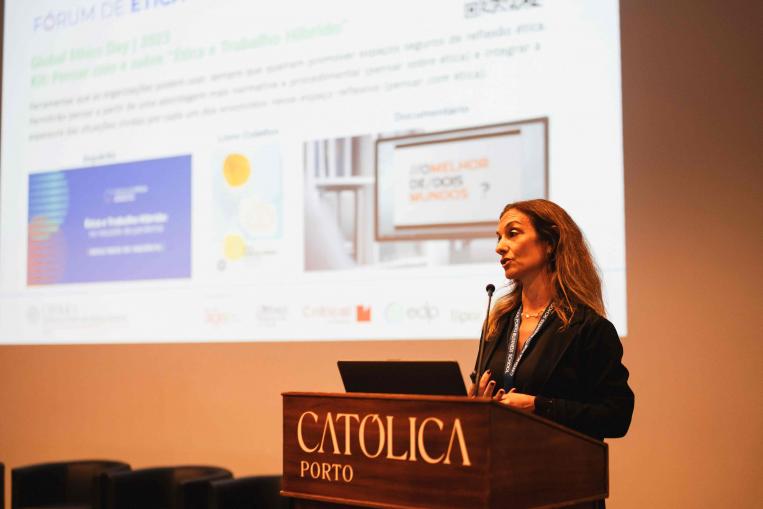
Susana Magalhães, who also coordinated the study, said: "This is a topic that is particularly important in society, given, for example, the increase in the retirement age and the fact that we are in the midst of the «Decade of Healthy Ageing»".
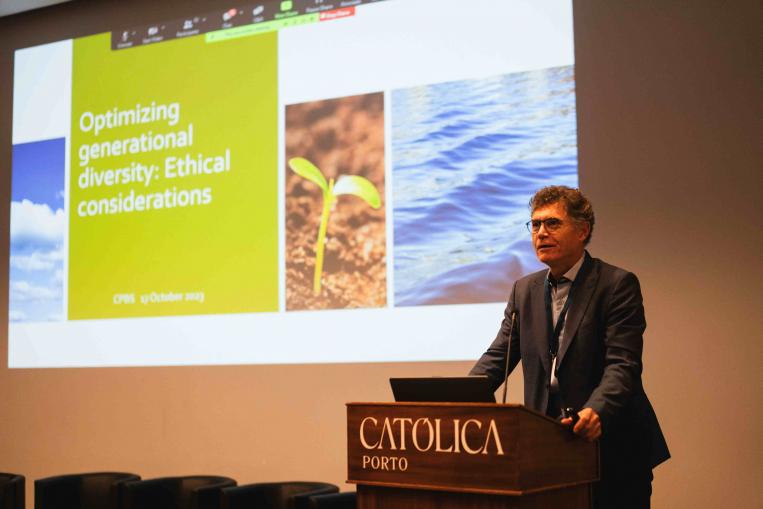
The session also featured a speech by Piet Naudé, Professor of Ethics and former Director of the Stellenbosch Business School, on "Key ethical considerations to optimize the institutional value of generational diversity" and Luísa Lopes, from the João Lobo Antunes Institute of Molecular Medicine at the Faculty of Medicine in Lisbon, on "Generational diversity from the perspective of longevity and healthy ageing - scientific facts and contributions from neuroscience studies".
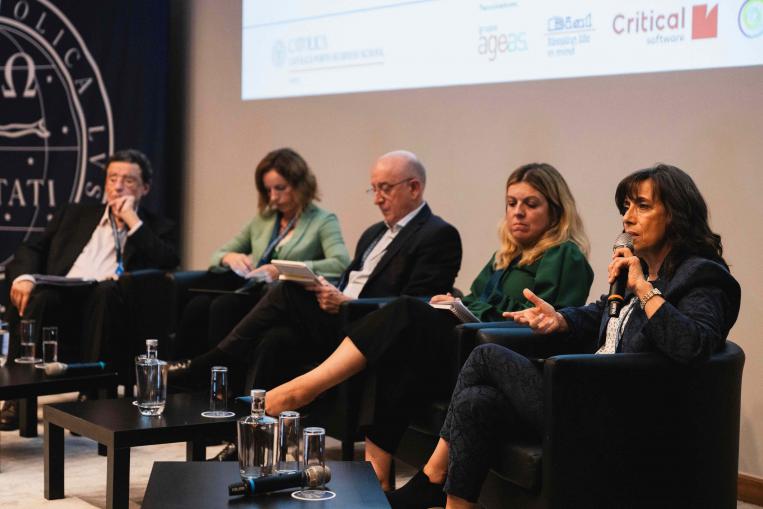
Alberto Castro, visiting full professor at CPBS and non-executive director of the Center for Management Studies and Applied Economics, moderated the round table on "Ethics and Generational Diversity at Work: Perspectives in Dialogue", which featured Ana Damião, Compliance Manager at Delta Cafés, Adelaide Martins, Advisor to the Board of Directors of Ascendi, Marisa Garrido, member of the Board of Directors of IAPMEI and Eduardo Paz Ferreira, full professor at the Faculty of Law in Lisbon and author of "Should I Close the Door? - Times of Ageism and Other Isms".
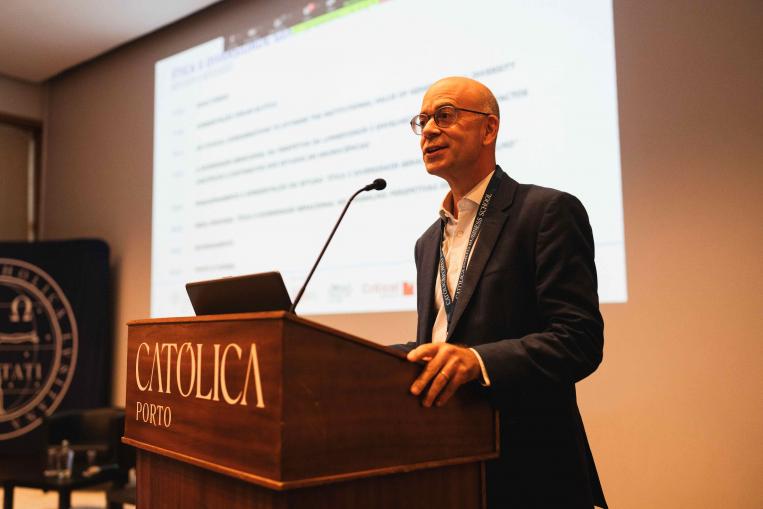
The session was also opened by Rui Soucasaux Sousa, Dean of Católica Porto Business School and closed by Isabel Braga da Cruz, Pro-Rector of Universidade Católica Portuguesa.
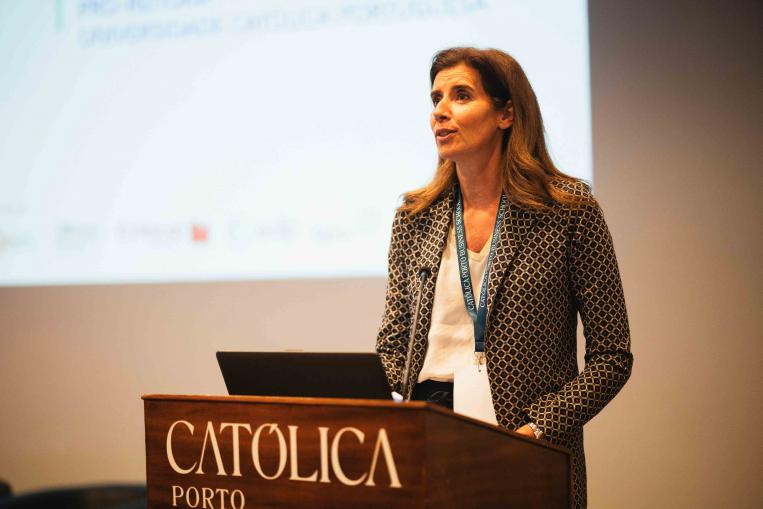
The Annual Conference was one of the initiatives of the Ethics Forum of Católica Porto Business School to mark Global Ethics Day, celebrated this year on October 18th.
The Ethics Forum at Católica Porto Business School is a space for meeting and reflecting on organizational ethics. Its aim is to promote business ethics through the exchange of experiences, joint reflection and the creation and sharing of knowledge, and its sponsoring companies are the Ageas Group, Bial, Critical Software, EDP, Lipor and the Super Bock Group.


